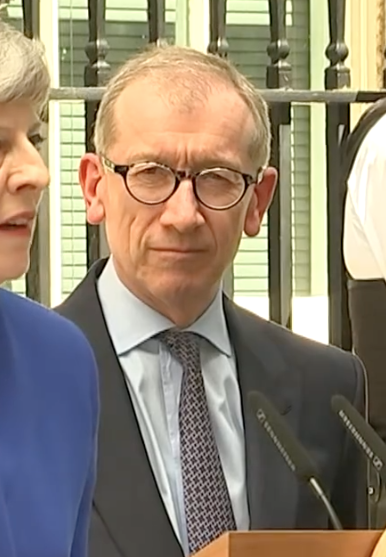We published already in Pressenza an article about who benefits from the missile attack to Syria by Trump, Macron and May (in short, they benefit, not the Syrian people).
Later it emerged that Philip May, husband of PM Theresa May may have a conflict of interests in matters related to UK’s foreign policy where military action is decided. An investigation by Tom D Rogers for Evolvepolitics concluded that “Theresa May’s husband’s Investment Firm made a financial killing from the bombing of Syria”.
“It is common knowledge that Theresa May’s husband Philip essentially acts as the unofficial advisor to the Prime Minister – a fact proven by the former Conservative MP for Chichester, Andrew Tyrie, who said during a Newsnight profile of the PM’s husband that “Philip is clearly acting as, informally, an advisor to Theresa. Probably much like Denis did to Margaret Thatcher.”
“Whilst it is pretty obvious that almost all married couples act as informal advisors to each other in come capacity, Tyrie’s admission that the Prime Minister’s husband has such a great influence over his wife’s decisions is made all the more worrying by the fact that Mr May – who is a Senior Executive at a £1.4Tn investment firm – stands to benefit financially from the decisions his wife, the Prime Minister, makes.
“The fact that Philip May is both a Senior Executive of a hugely powerful investment firm, and privy to reams of insider information from the Prime Minister – knowledge which, when it becomes public, hugely affects the share prices of the companies his firm invests in – makes Mr May’s official employment a staggering conflict of interest for the husband of a sitting Prime Minister.
“However, aside from the ease at which he is able to glean insider information from his wife about potential decisions which could go on to make huge profits for his firm, there is a far darker conflict of interest that has so far gone undiscussed.
“Philip May is a Senior Executive of Capital Group, an Investment Firm who buy shares in all sorts of companies across the globe – including thousands of shares in the world’s biggest Defence Firm, Lockheed Martin.
“According to Investopedia, Philip May’s Capital Group owned around 7.09% of Lockheed Martin in March 2018 – a stake said to be worth more than £7Bn at this time. Whilst other sources say Capital Group’s shareholding of Lockheed Martin may actually be closer to 10%.
“On the 14th April 2018, the Prime Minister Theresa May sanctioned British military action on Syria in response to an apparent chemical attack on the city of Douma – air strikes that saw the debut of a new type of Cruise Missile, the JASSM, produced exclusively by the Lockheed Martin Corporation.
The debut of this new – and incredibly expensive – weapon was exactly what US President Donald Trump was referring to when he tweeted that the weapons being fired on Syria would be “nice and new and ‘smart!’”
“Every single JASSM used in the recent bombing of Syria costs more than $1,000,000, and as a result of their widespread use during the recent bombing of Syria by Western forces, the share price of Lockheed Martin soared.
“Consequently, with the air strikes on Syria having hugely boosted Lockheed Martin’s share price when markets reopened on Monday, Philip May’s firm subsequently made a fortune from their investment in the Defence giant.”
Roger’s investigation puts in the spotlight somethings that is permanently happening in armed conflicts: arms manufacturers, their investment shareholders and the politicians who have shares in such companies benefit financially from Wars. In fact it is important to propose that prospective candidates in elections (and their families) should not have financial interests in the Arms Trade as whether consciously or not they will be biased towards war rather than peace. Decision making on issues of armed conflict cannot, should not, be in the hands of those who profit from war. At present Members of Parliament must disclose their financial interests (directorships, etc) but only after being elected, and there is no duty to declare family’s ties to arms manufacturers.
In this case such direct connection between someone who may have influenced the PM decision to bomb Syria and his financial interests in the missiles must sound alarm bells loud and clear. The only way to break the link between politicians and the Arms Trade is to make those with interests in it (or who have close relatives who do) unelectable.










